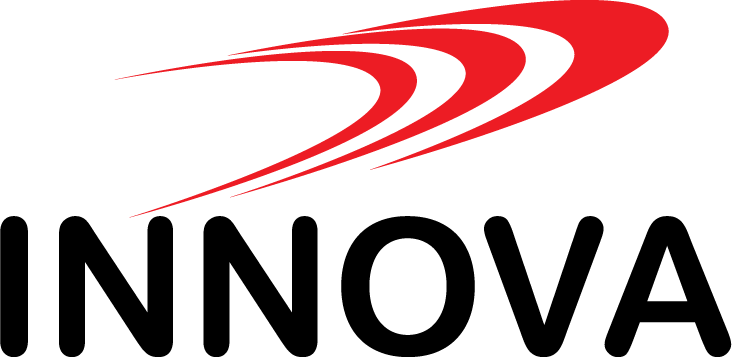Even for seasoned business owners, complex regulations, deductions, and deadlines make tax compliance difficult. Tax compliance is critical to running a small business, but many entrepreneurs need help managing the complicated maze of tax rules. Small business entrepreneurs focused on generating products, managing money, and growing may need help with tax compliance.
Recognizing entrepreneurs’ challenges in this area, Innova Investments, LLC helps businesses understand the world of taxation. The Bluffton-based company helps businesses follow through with their tax compliance, whether big or small. They offer strategies and insights needed to handle the ever-changing tax landscape. They provide the information and resources a business may need to comply with legal requirements, optimize finances, and grow enterprises. If you need help with your business’s tax compliance, don’t hesitate to call Innova Investments, LLC.
Call Innova Investments, LLC at (843) 951-9555 Today
Table of Contents
ToggleKey Steps to Small Business
Tax Compliance
Tax compliance refers to adhering to the laws and regulations that regulate tax filing and payment. Maintaining compliance is crucial to financial responsibility and a firm’s legal duty. Noncompliance with tax rules can result in penalties, fines, and even legal challenges, jeopardizing the company’s viability and expansion.
1. Know Your Business Structure
It is vital to determine the suitable legal form for your organization. Whether you’re a sole proprietor, partnership, LLC, or corporation, each form has tax ramifications. Consult a tax professional to determine the best structure for your unique situation.
2. Get an Employer Identification Number
An employer identification number (EIN) is a unique identification number the Internal Revenue Service provides to businesses for tax purposes. Even if you don’t have staff, getting an EIN is necessary to create a company bank account, file taxes, and build trust with vendors and partners.
3. Accurate Financial Records
Maintain accurate and structured financial records for tax compliance. Set up an effective accounting system to track income, costs, and receipts. Cloud-based accounting software can speed up the generation of financial reports and ensure accuracy when submitting taxes.
4. Separate Personal and Business Finances
Small company operators should keep their personal and business funds separate. It involves maintaining separate bank accounts and credit cards for company use. This simplifies recordkeeping and displays financial transparency to tax authorities.
5. Learn More About Tax Credits and Deductions
Learn about various tax deductions and credits to decrease your tax obligation. Standard deductions include business costs, home office deductions, and transportation. Keeping thorough records of qualified spending can help you maximize your tax savings.
6. Remain Up-To-Date With Tax Law
You must remain up-to-date on changes in tax law. Check for updates from tax authorities regularly, and consider speaking with a tax professional to understand better how changes may affect your business.
7. Timely and Accurate Filing of Taxes
Companies must submit annual income tax returns, which must be accurate and filed on time. Ensure your tax returns are correct and completed on time to avoid fines. Consider dealing with a tax professional to help you understand the intricacies of tax forms and rules.

Benefits of Hiring a Business
Tax Compliance Professional
Tax Compliance Professional
Hiring a knowledgeable tax consultant may significantly benefit businesses. A tax advisor gives valuable insights, assures regulatory compliance, and assists in finding tax-saving options. Professional skills can be beneficial when your firm expands and encounters increasingly tricky tax issues. Here are the benefits of hiring a knowledgeable tax consultant:
Manage Financial Records
Create a document retention policy to manage and store financial documents effectively. This policy will allow you to have the appropriate evidence to back up your tax filings in case of an audit. Keep physical and digital copies of crucial receipts, invoices, and tax forms.
Regular Audit
Conduct regular internal audits to uncover and correct inconsistencies in your financial records and processes. Internal audits detect errors before they become severe concerns and contribute to a culture of accuracy and compliance in your company.
Tax Compliance Software
Businesses can use tax compliance software to take advantage of technological advancements. These programs can automate many portions of tax preparation, resulting in greater accuracy and efficiency. Furthermore, they often give updates on changes to tax rules and regulations, allowing you to keep informed. Most tax professionals use this software to help with their clients’ compliance.
Tax Planning
Companies frequently need to make estimated payments throughout the year. Planning for these payments might help you avoid financial difficulty during tax season. Consult your tax professional to establish the right amount and timing for projected tax payments depending on your company’s income and spending.
Tax compliance requires knowing regulatory requirements, following best practices, and using professional experience.
Frequently Asked Questions
What Is Tax Compliance, and Why Is It Vital for Small Businesses?
Tax compliance is conformity to the laws and regulations that regulate tax filing and payment. It is vital for small businesses since noncompliance can result in penalties, fines, and legal challenges, impacting financial stability and development.
How Does a Small Business’s Structure Influence Its Tax Compliance?
The small business’s structure has a considerable influence on tax compliance. Tax effects vary depending on the structure (sole proprietorship, LLC, or corporation). The appropriate structure is critical for maximizing tax benefits and complying with relevant requirements.
Is It Necessary for Small Firms to Employ a Tax Professional?
While not required or considered ‘necessary,’ employing a trained tax consultant can be helpful for small businesses. Tax professionals provide experience, assure compliance, and assist in identifying potential for tax savings as the company expands and encounters increasingly difficult conditions.

Tax Compliance by
Innova Investments, LLC
A reliable tax consultant can enable businesses to navigate the complex tax compliance landscape confidently, ensuring financial stability and long-term success. Businesses can trust tax compliance by Innova Investments, LLC; we have helped customers prepare tax returns and devise tax-saving methods for commercial use for years. Our services include bookkeeping, payroll, and business consulting in Bluffton, SC.
